Fleeing Syria: Brazil as a last resort
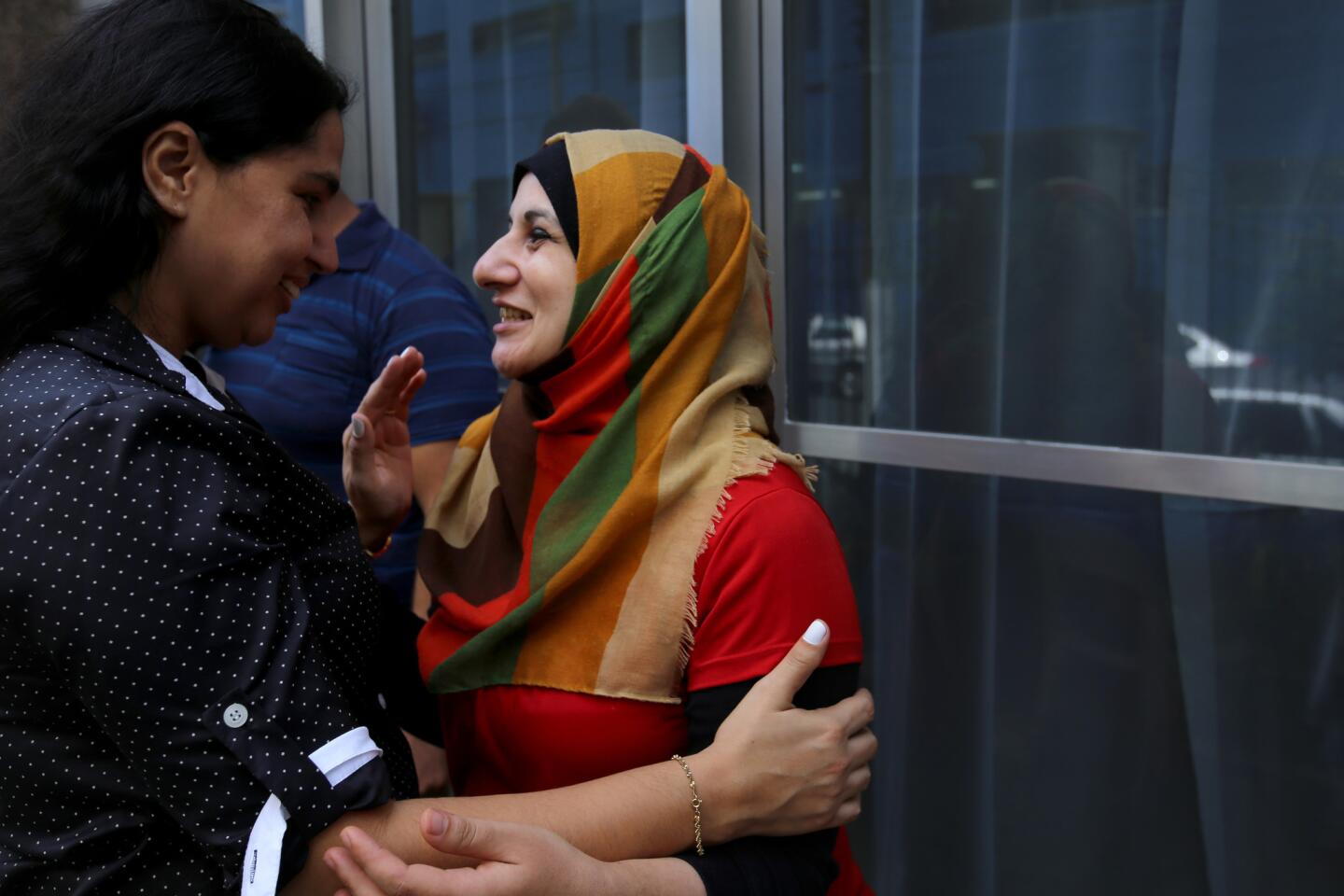
Muna Darweesh, right, chats with a friend while on an outing with her family. Like many of the Syrian refugees who have been trickling into Brazil, she came as a last resort. “I didn’t choose Brazil,” she says. “It was the only country that would take us.”
By Rick Loomis
Many newly arrived Syrians in Sao Paulo think of it as a temporary refuge en route to more permanent homes, in more familiar lands.
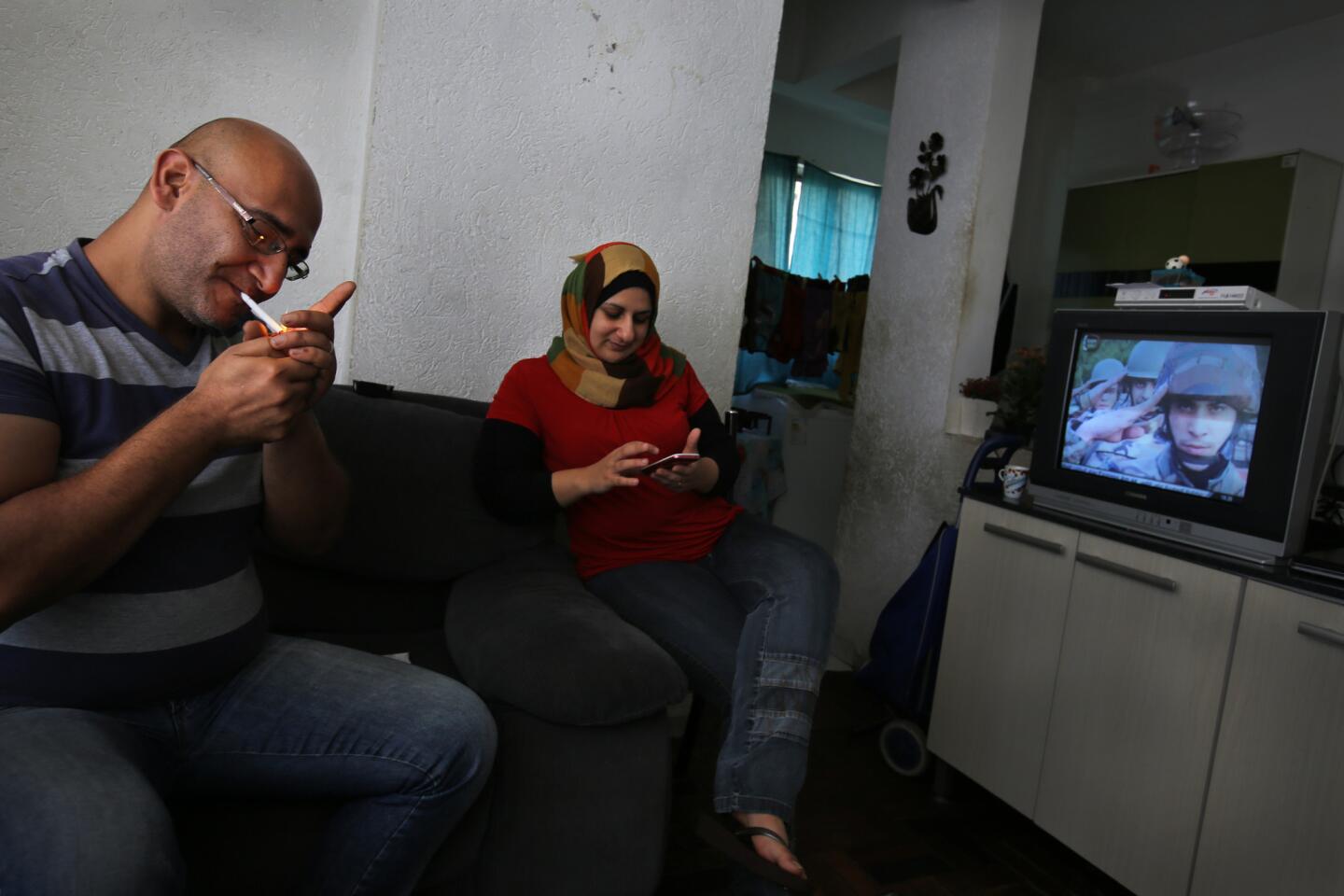
Wessam Jammal and his wife, Muna Darweesh, keep their television tuned to a Syrian channel as they yearn for a taste of home.
(Rick Loomis / Los Angeles Times)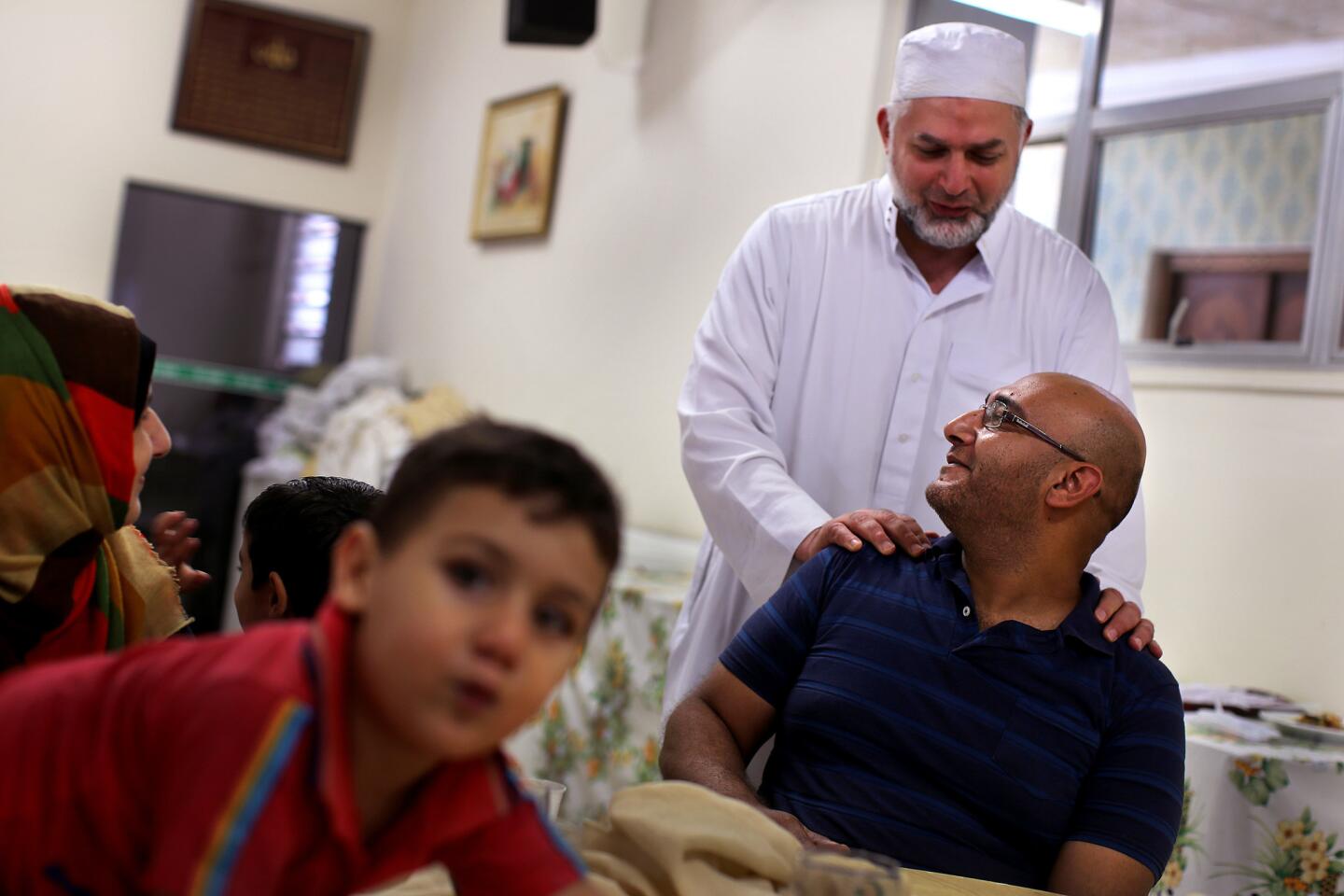
Wessam Jammal, seated, chats with professor Feres Fares during a meal held just after Friday afternoon prayers at the Mesquita Brazil in Sao Paulo. Though Muslims are a minority in the country, they find community by attending prayers each week.
(Rick Loomis / Los Angeles Times)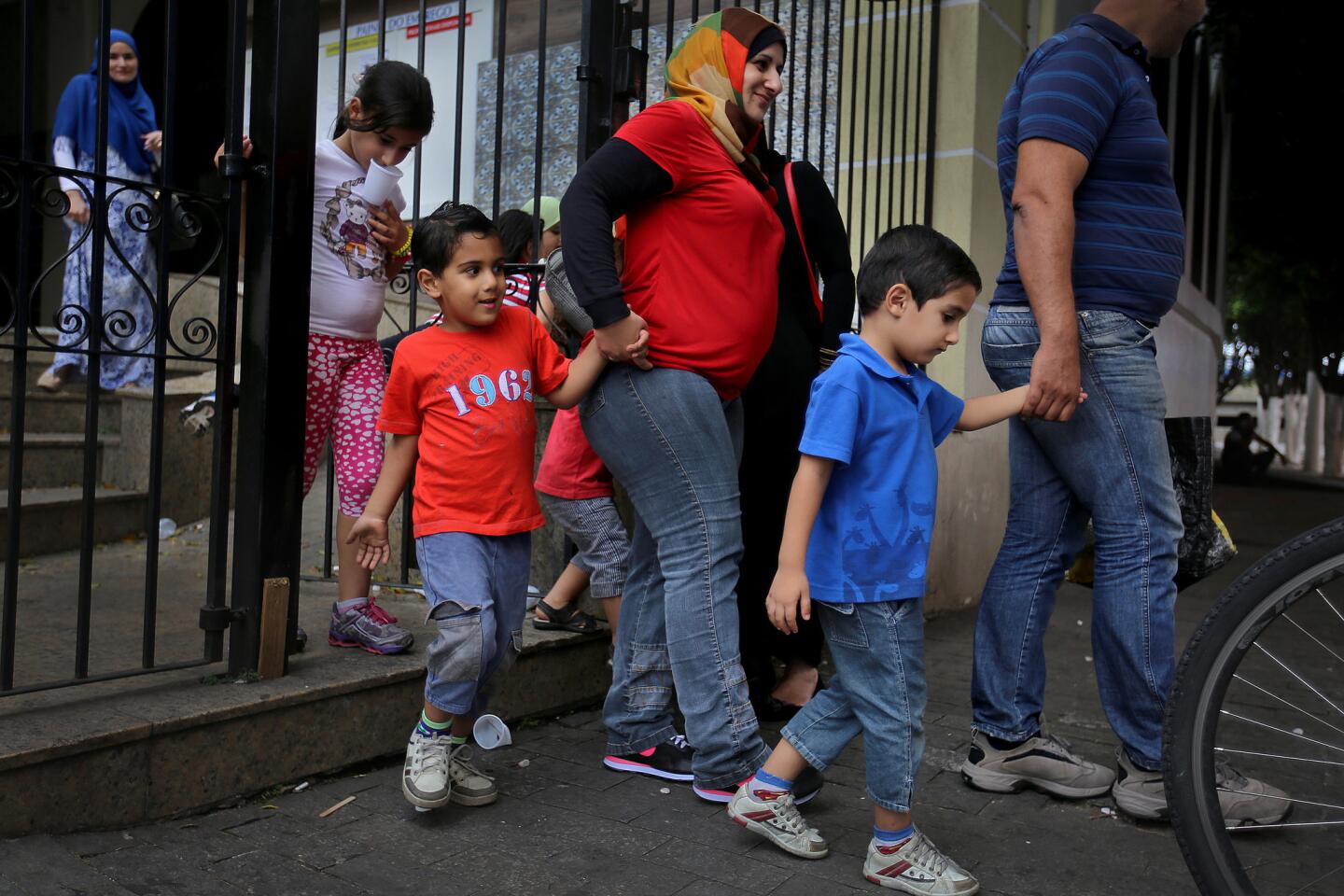
Muna Darweesh and her husband, Wessam Jammal, leave the Mesquita Brazil mosque with their children after recent Friday afternoon prayers. The family has lived in the country since 2013.
(Rick Loomis / Los Angeles Times)Advertisement
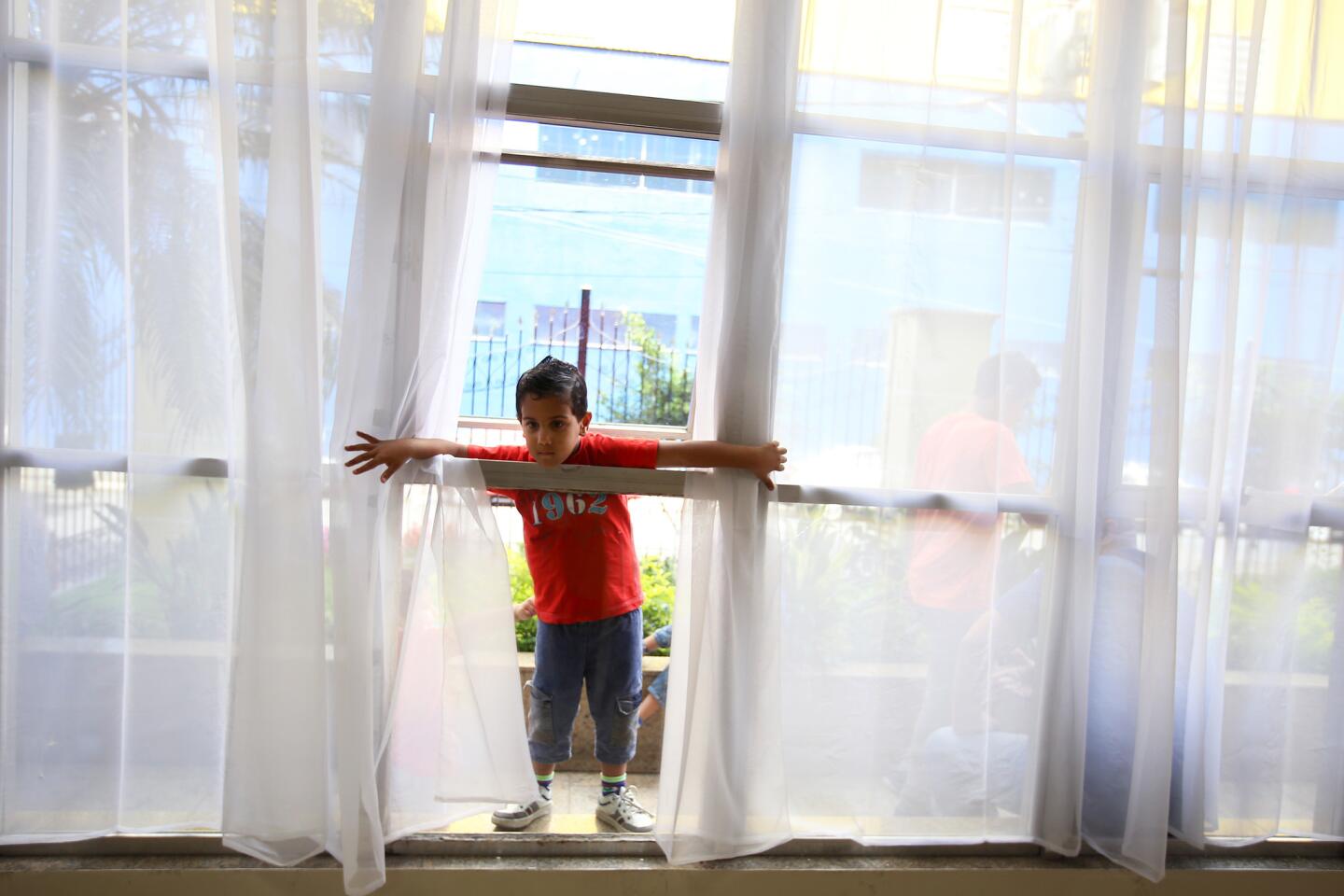
Mohammad Jammal, 4, peeks through the curtains in his family’s apartment complex, on a street where they know not to go outside after dark.
(Rick Loomis / Los Angeles Times)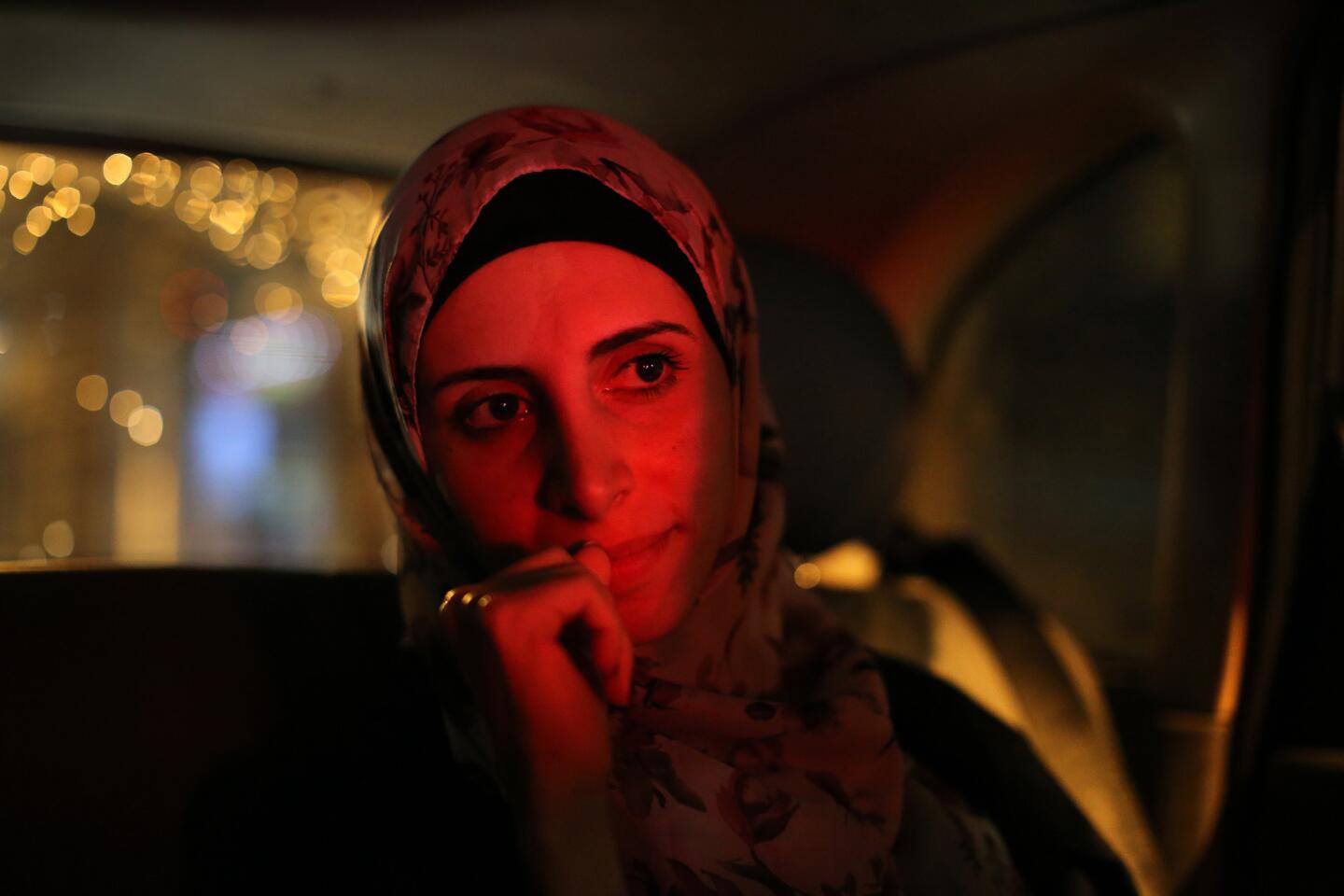
Dana Balkhi traveled to Brazil alone, a rare choice for unmarried Muslim women. In the time she has been in Brazil, she’s turned down 10 marriage proposals. “I can’t be kept,” she says.
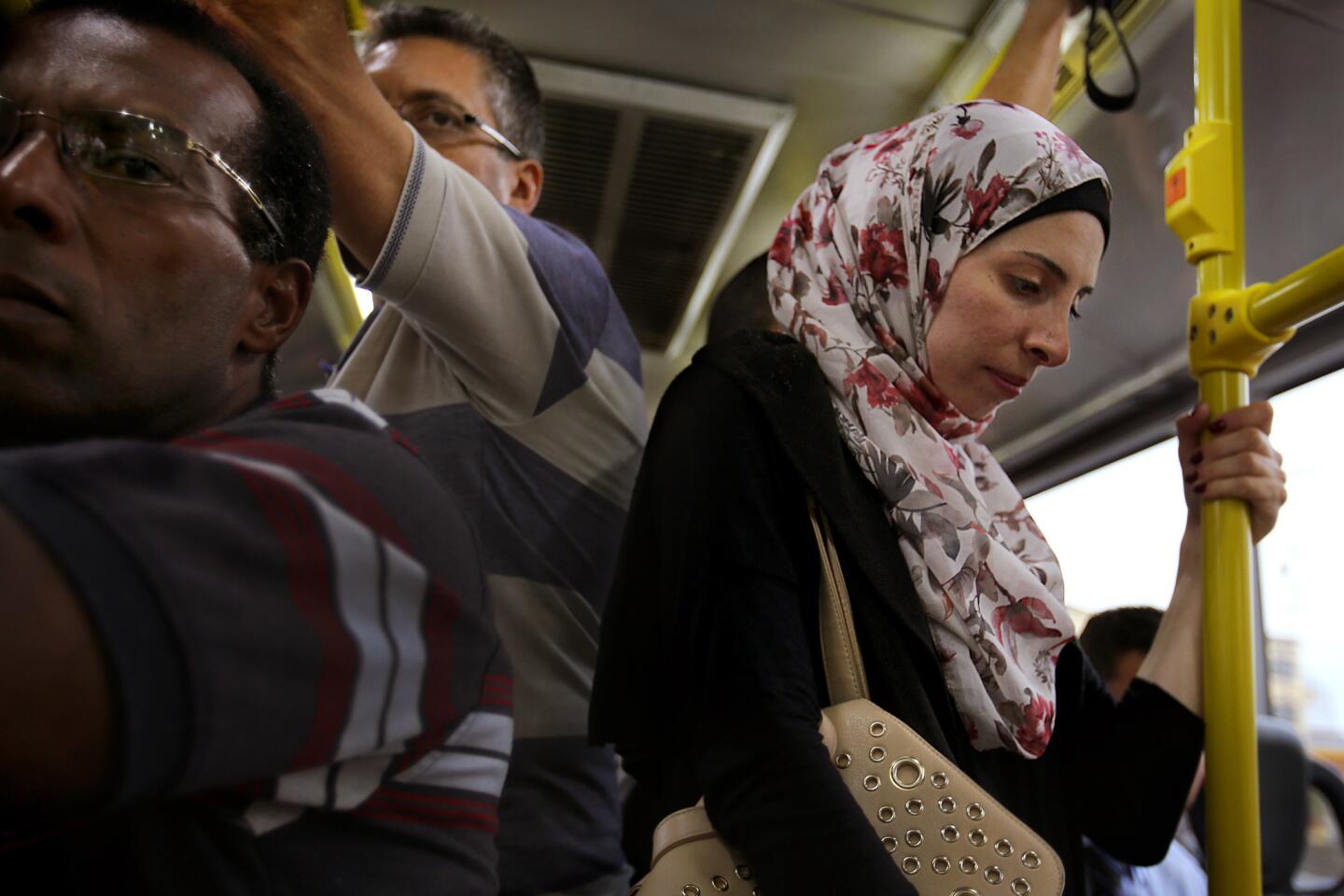
Dana Balkhi often draws the attention of Sao Paulo residents when she wears the traditional Islamic hijab. For a time after she arrived in Brazil she took it off to blend in but soon returned to wearing it again.
(Rick Loomis / Los Angeles Times)
Brazil is a predominately Catholic country so Dana Balkhi’s hijab often draws looks from those around her. She believes it limits her employability.
(Rick Loomis / Los Angeles Times)Advertisement
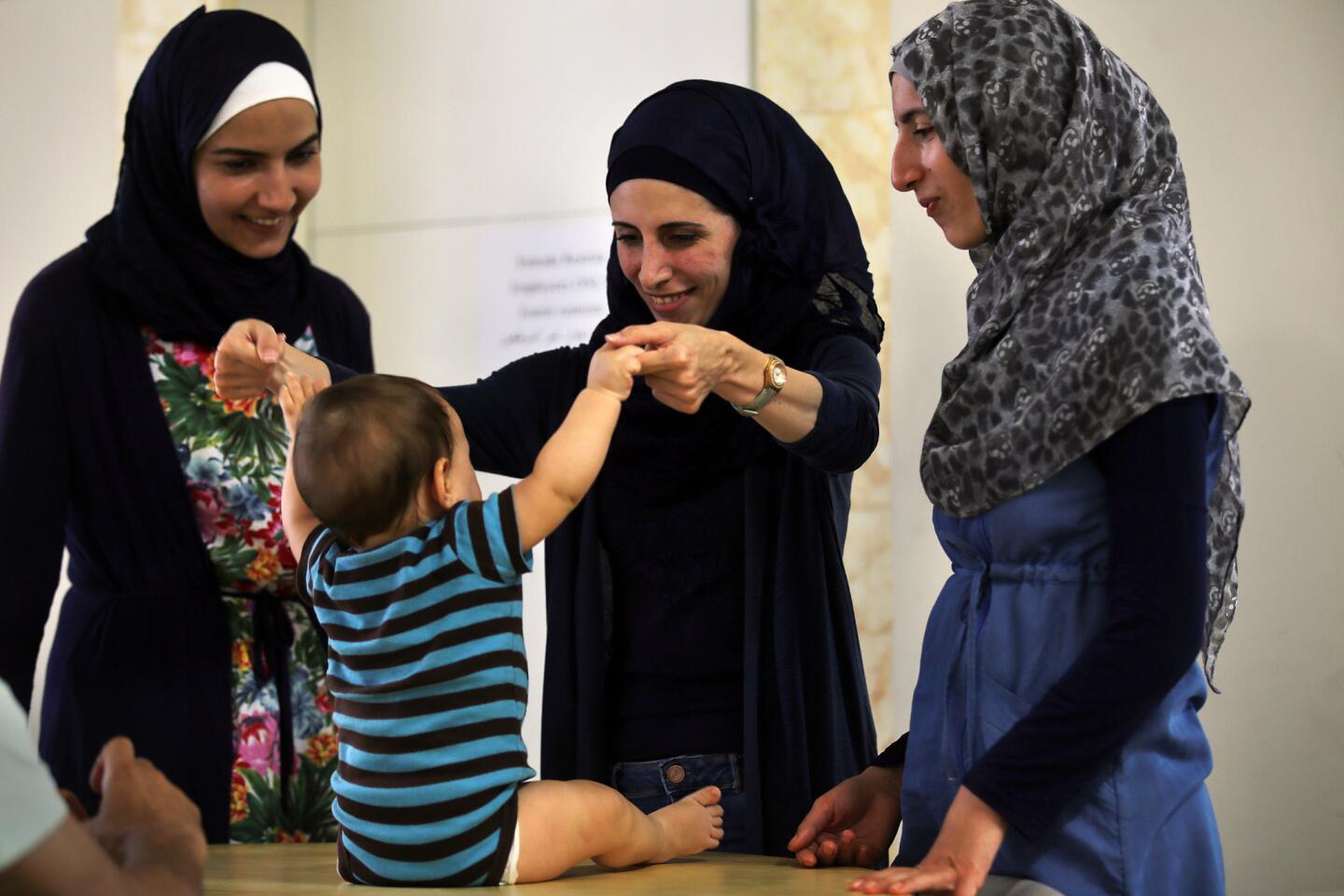
Dana Balkhi spends time at the Mesquita Brazil mosque where she does secretarial work, earning just enough to get by.
(Rick Loomis / Los Angeles Times)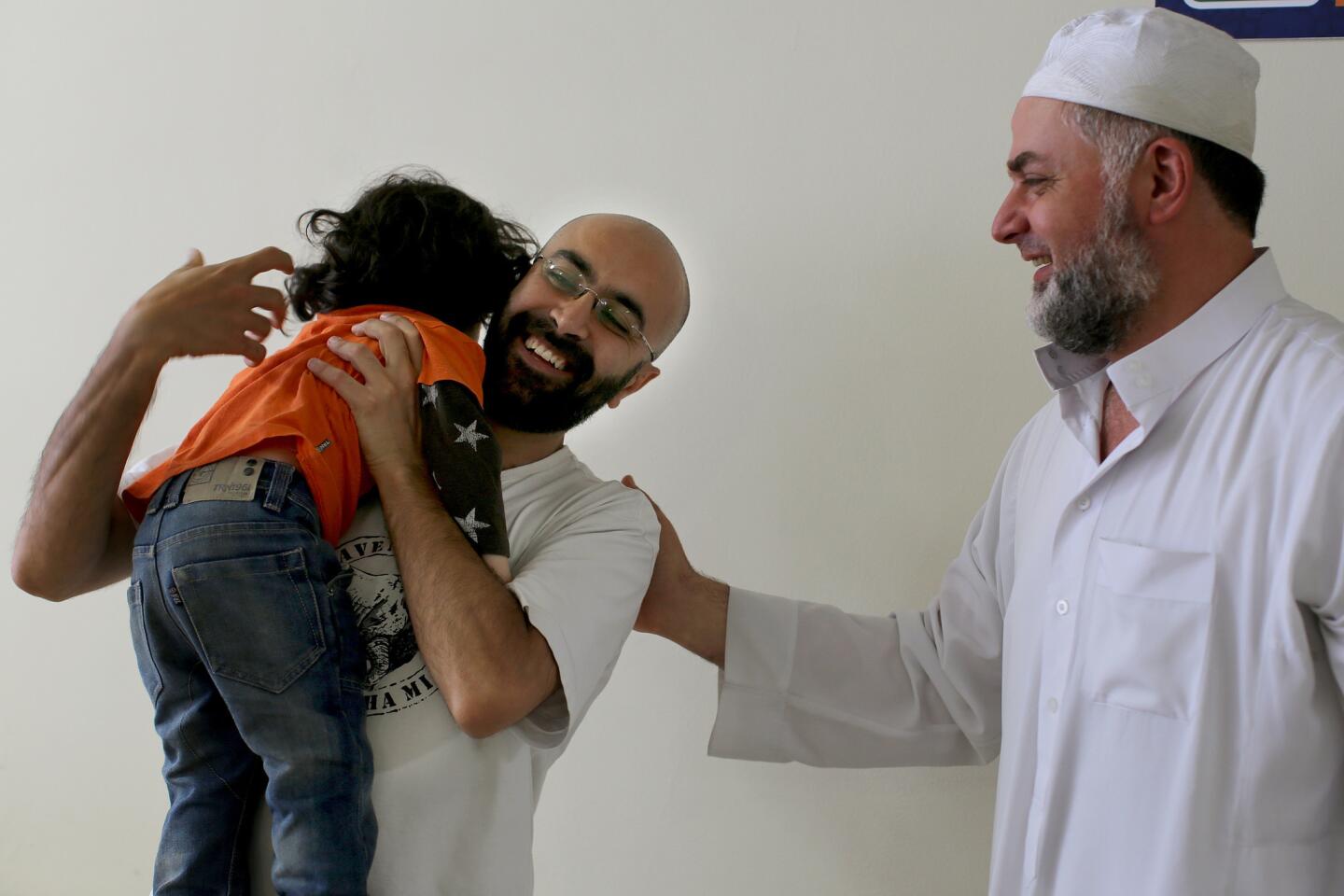
Wessam Kourdi, with his son Ryan, 3, and professor Feres Fares. Kourdi and his wife socialize with friends at the mosque after Friday prayers, but “the Islam here in Brazil is a milder Islam,” he says.
(Rick Loomis / Los Angeles Times)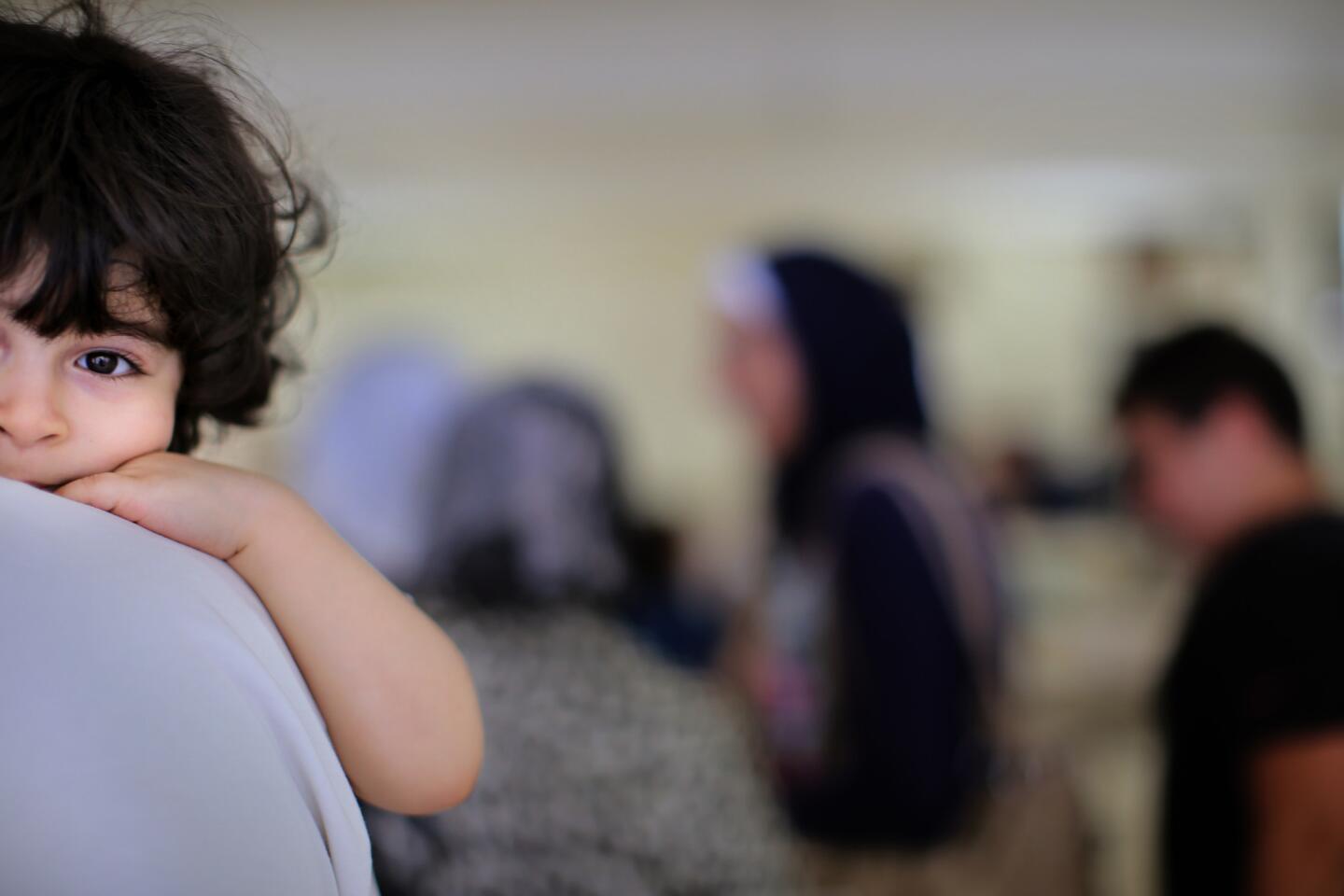
Wessam Kourdi doesn’t want his son Ryan growing up in Brazil. “It’s a good country, but it’s not for us -- not for Muslims,” he says.
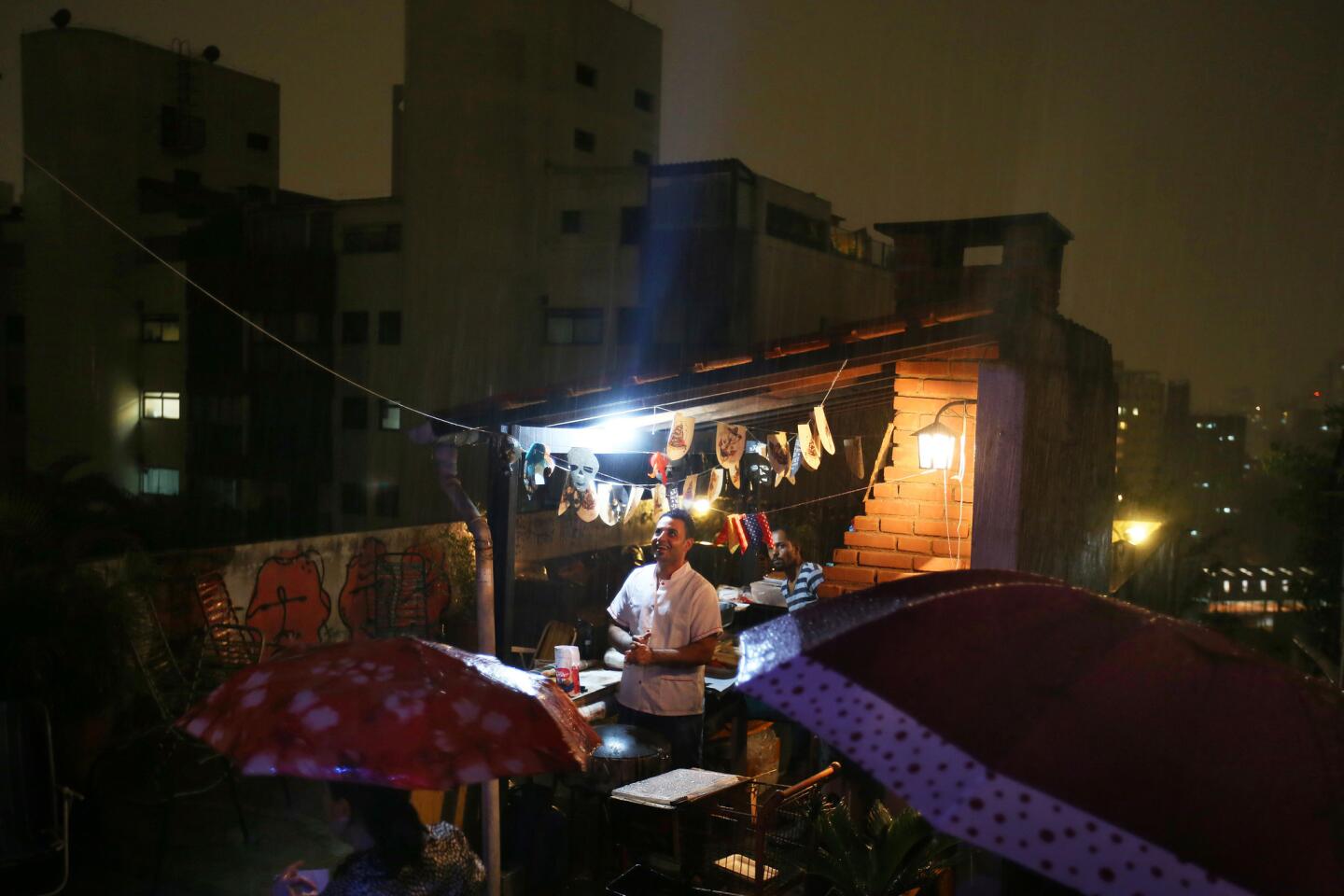
“Being here is better than dying there,” Mohammed Othman says of his new life in Brazil. Despite the rain, he and his brother cook their weekly meal on the patio of a local disco.
(Rick Loomis / Los Angeles Times)Advertisement
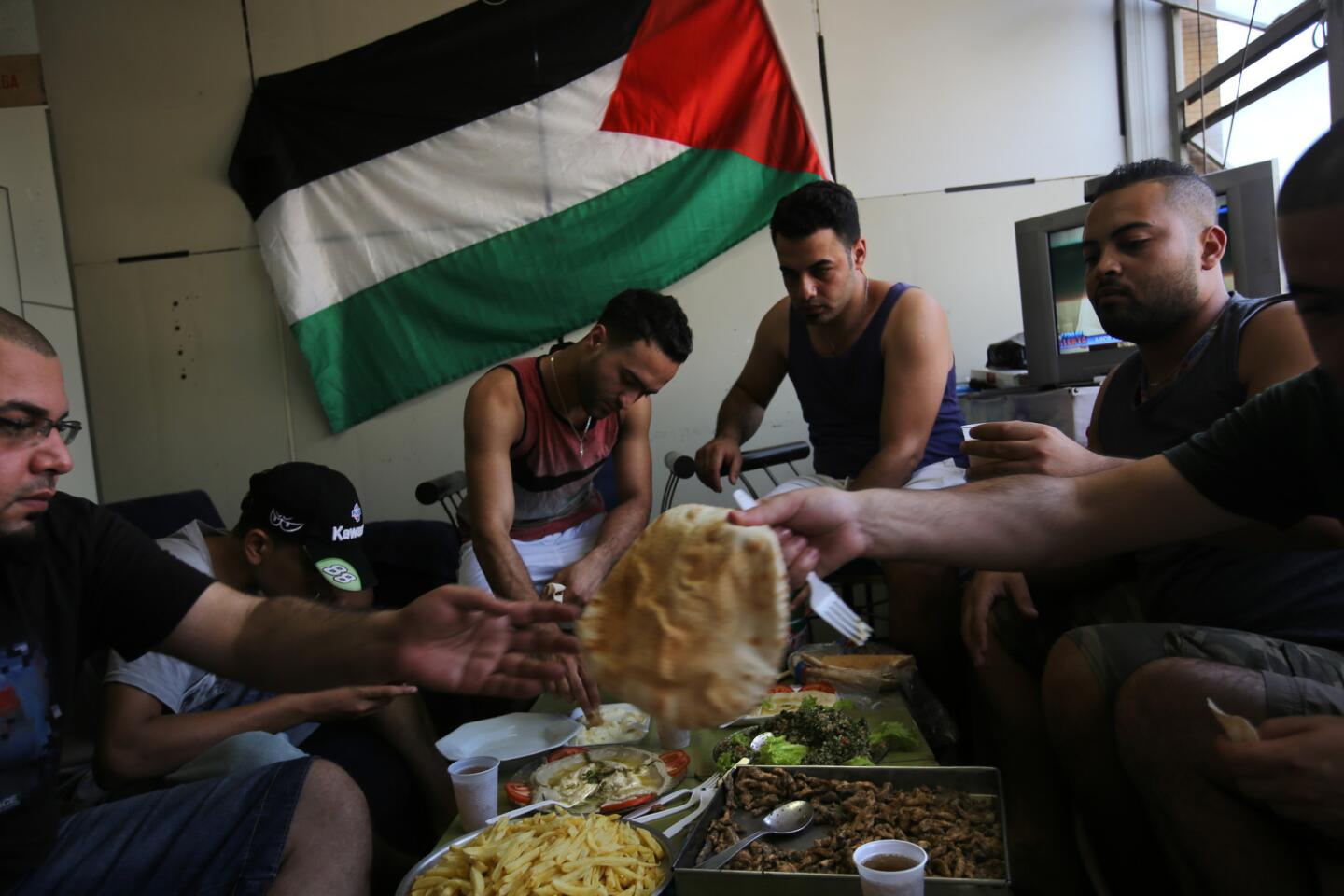
Several “double refugees” -- those of Palestinian decent born in Syria -- share a meal inside the squatters’ building where they live in Sao Paulo. Among them, brothers Rami and Mohammed Othman came from the Spina refugee camp in Damascus.
(Rick Loomis / Los Angeles Times)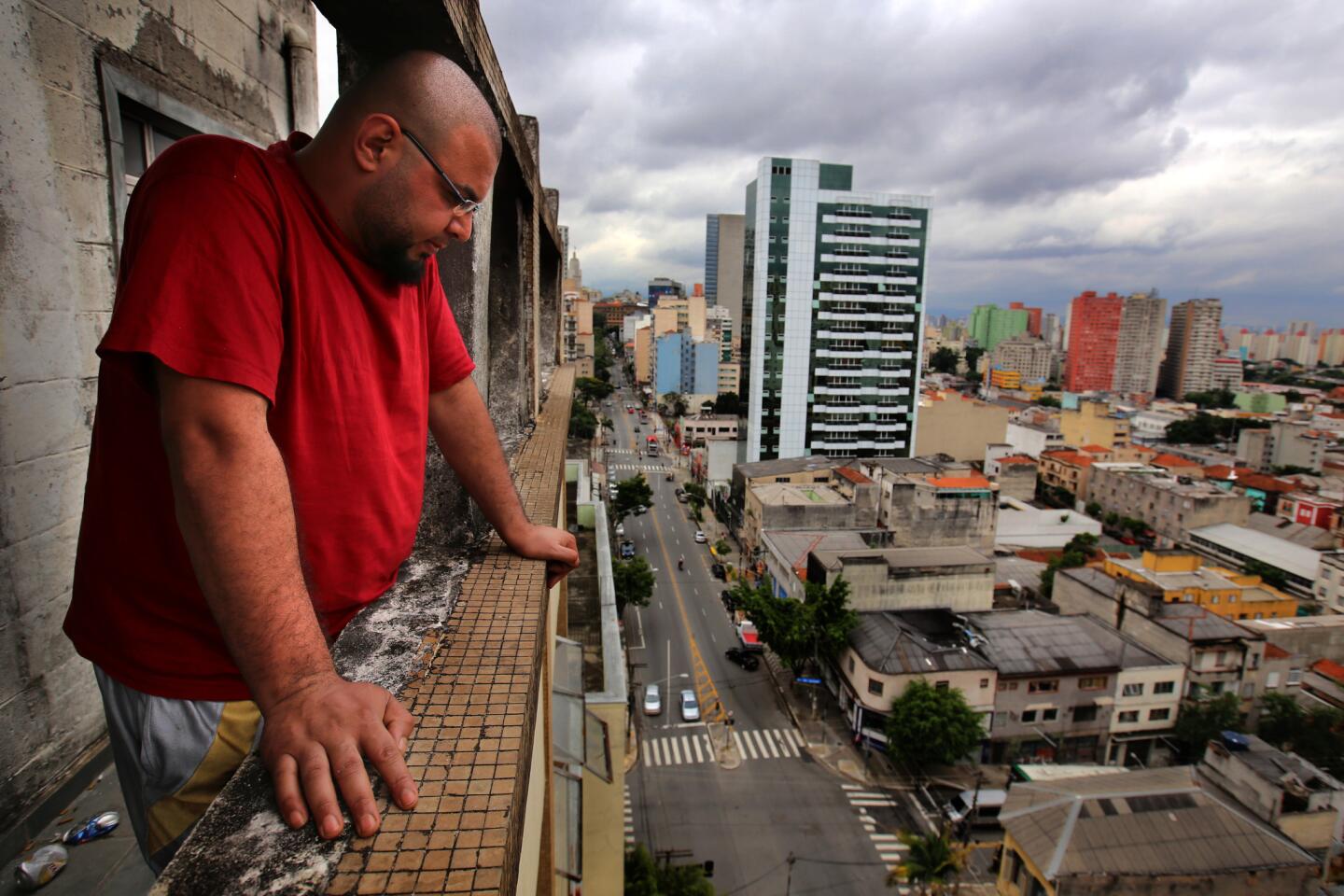
Rami Othman and his brother Mohammed live in an abandoned office building with several other Syrian refugees. They eke out a living by cooking and selling Arabic food once a week at a local disco. They hope to one day open their own restaurant in Sao Paulo.
(Rick Loomis / Los Angeles Times)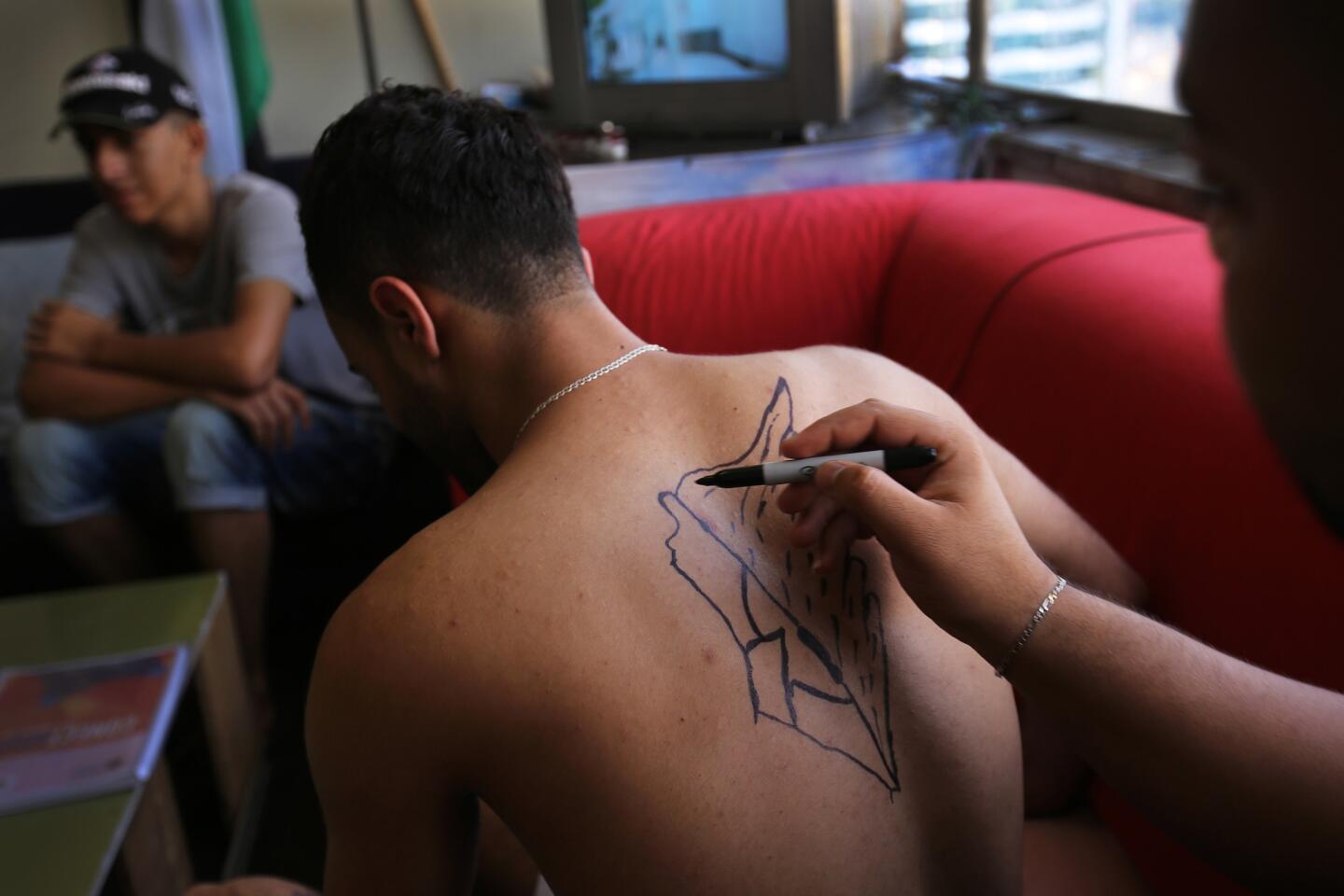
Khaled Kassim has a temporary tattoo drawn on his back to show his Palestinian pride.
(Rick Loomis / Los Angeles Times)
Wahib Hayek, watches as members of the Escola de Samba Vai-Vai parade through the streets in preparation for the upcoming Carnival of Brazil. Hayek has been busy reinventing himself since arriving in the country.
(Rick Loomis / Los Angeles Times)Advertisement
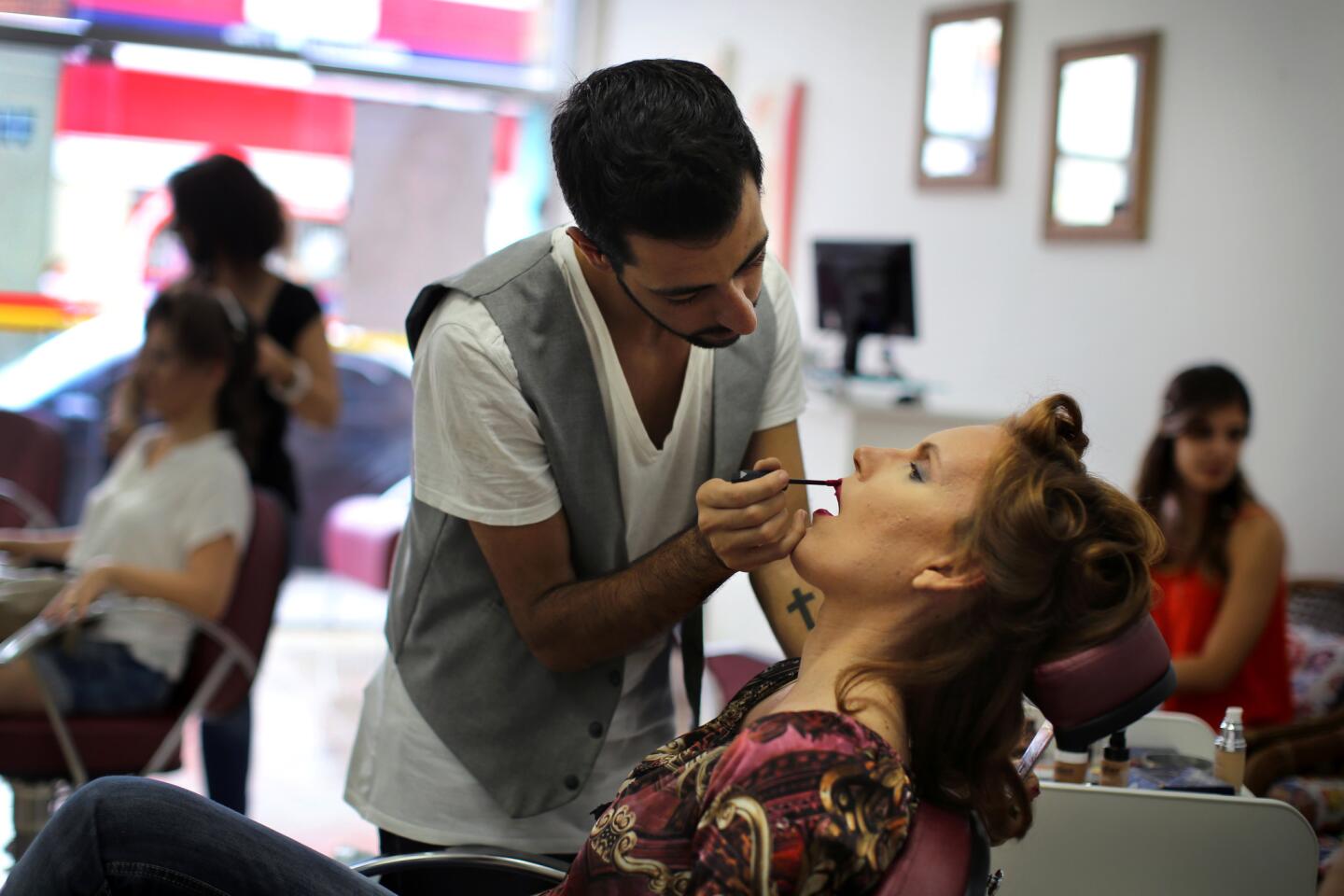
Wahib Hayek says he felt at home as soon as he got off the plane in Sao Paulo. Before long, he had a job at a hair salon.
(Rick Loomis / Los Angeles Times)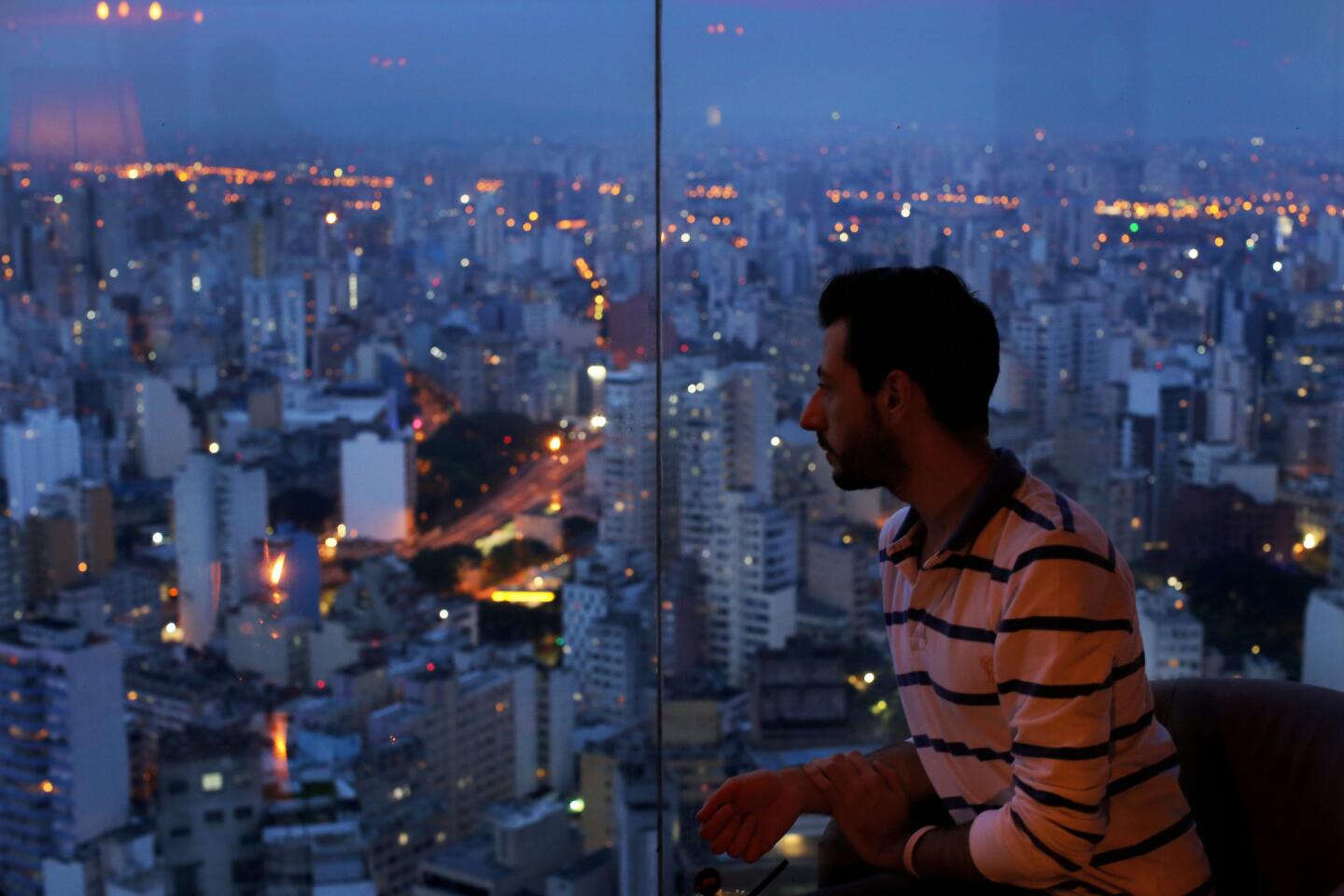
“It’s like science fiction,” says Wahib Hayek of the expansive view from atop a Sao Paulo high-rise. “And people ask why I came to Brazil.”
(Rick Loomis / Los Angeles Times)
Wahib Hayek, left, is surrounded by new friends during a late night out at a karaoke bar. Hayek, who has used the name William since he arrived in the country, has been busily learning Portuguese and adjusting to life in a new country.
(Rick Loomis / Los Angeles Times)
Wahib Hayek parties till the early hours, many nights, even if he has to work the next day.
“I’m 24,” he says. “I’m pushing my body to the limit. I don’t want to be 50 and go, ‘I was 24 and I didn’t go out.’”
Former staff photographer Rick Loomis was born in North Carolina, raised in Florida and graduated from Western Kentucky University before joining the staff of the Los Angeles Times in 1994. In addition to local coverage, Loomis has been on assignment in more than 25 countries. He’s been honored with the Pulitzer Prize, the Robert F. Kennedy award, the Sidney Hillman award and been the NPPA’s Photographer of the Year. He teaches photography and is a frequent guest lecturer.




